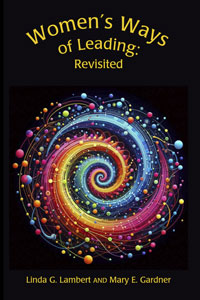« Mindful Leadership | Leaderless Revolution? »
Egypt in revolution
On the eve of the fall of the Berlin Wall in 1989, Morgan and I moved to Egypt. We lived there for two years and then returned for months at a time over the next two decades. We grew to know Egypt and its astounding peoples well, so we both rejoice and feel apprehensive as we watch the revolution. We are slated to return in May as part of an assignment in Beirut. We’ll see.
Egyptians are a loving, resilient people with a capacity for tolerance that comes from faith in their own lives and each other, their histories and beliefs. I am surprised at the intensity of the revolt, yet realize that Egypt was a powder keg ready to explore. Tunisia lit the match. The economy is a disaster, salaries incredibly low so that young people can see no way to marry and have a place of their own, individuals often work three jobs, the “war of terror” has reduced the livelihood that used to come from tourism, education is no assurance of employment, the police wielded its own form of justice, religious pressure has forced more and more women to wear the hijab, rigged elections have kept Mubarak in power for 30 years while also allowing larger numbers of the Muslim Brotherhood (running as “Independents”) to join the legislature. It’s complicated.
Especially for the United States. We are very, very involved in Egypt, which has been the more reasonable supporter of peace in the Middle East, an ally our adventures—many of them unwise—into the region. Mubarak has resisted fundamentalism, often in a heavy handed way. And then there is the Suez Canal and the price of oil. Our greatest fear, of course, is that we might see another Iran if a vacuum arises that becomes filled with more radical factions. That doesn’t seem to be occurring at the moment. Both Mohamed ElBaradei (Nobel Prize recipient and former chair of the Atomic Energy Commission) and Ayman Nour (a democratic leader whom we’ve followed for a few years, imprisoned by Mubarak when we tried to run for president) have great promise as democratic leaders. Yet in a country of 85 million, anything could happen. Tomorrow’s “ March of Millions” could turn the tables.
Former Ambassador Frank Wisner, who arrived today in Cairo, could be very helpful. We met him in Cairo and have followed his career. He is fluent in Arabic and respected by President Mubarak, so he could help pave the way for a transition of power. Yet, if Mubarak can hold onto the military. he could probably stay in office (certainly the appointment of two military leaders as Vice-President—this one, Sulieman, a rendition specialist—and Prime Minister suggests that is probably his strategy).
In Cairo Diary: an Egyptian fable, I sought to describe the prerequisite conditions that led to this week’s uprising.
One fascinating element about this ground swell of revolution is watching Egypt as a self-organizing system. In yesterday’s post, I noted that self-organization can mean complex systems that spontaneously create structures out of chaos. This is a keen lesson in quantum mechanics. Self-organization can arise when the profound pressures of the status quo connect with a refreshing vision of what is possible. A new future. Under the chaos exists the capacity to organize for cultural change. A few examples from Egypt include: people organizing to take responsibility for their country; defending the Egyptian museum; controlling traffic and clean-up; neighborhood watch groups; protecting each other; praying in front of tanks. Devotion to civil relationships with the respected military.
Self-organizing systems build leadership capacity. Very promising.
More tomorrow. Linda
2 Responses to “Egypt in revolution”
Leave a Reply





Thank you for this insight. One of actions that illustrates Egyptian capacity to organize for cultural change was a picture I saw yesterday on CNN. A women was walking around the square with an armful of Calla Lilies and Roses, placing them on the tanks. What an image of peaceful protest.
Mary,
What a beautiful image! Thank you, Linda